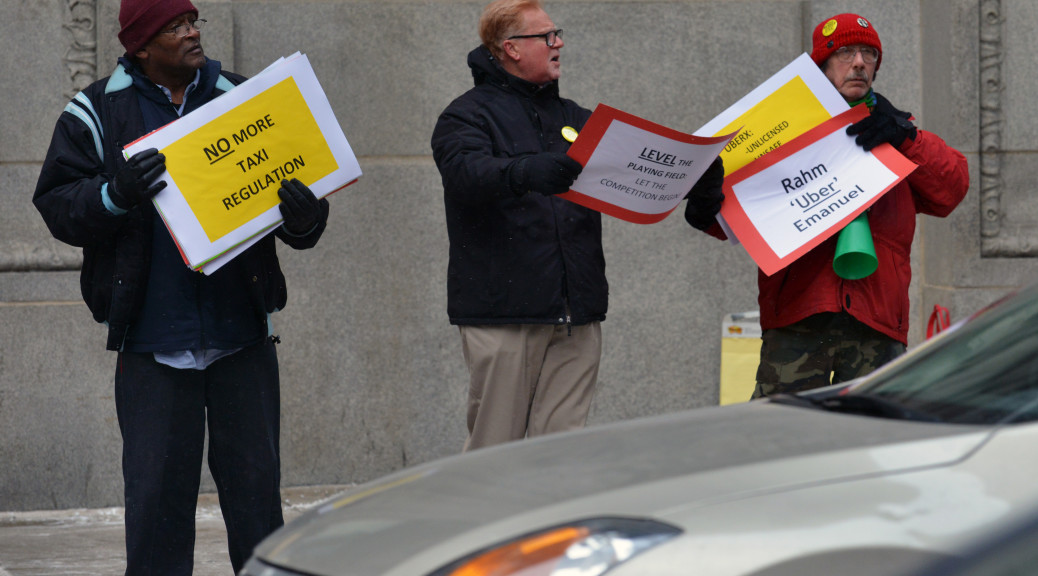The City of Chicago has passed an ordinance that hopes to empower cab companies to have a better chance in competing against ridesharing services like Uber and Lyft. However, Chicago companies are not impressed. They have gone straight to the aldermen in the hopes of freely expressing their belief that what the city council is doing is not enough.
Proving that they are serious about their cause, the cab drivers presented a few statistics to strengthen their case. Over 13,000 amateur drivers have become their competition since ridesharing services were introduced in the city, which they claim threaten not only their livelihood as professional drivers, but the safety of the public as well.
Comparing the road to become a cab driver to that of being an Uber or Lyft driver, there definitely are a few major differences. Before cab drivers can get their professional driving license, they would have to go through a series of drug tests and physical exams. They also have to hold commercial liability insurance, and should finish a course that would take two weeks to complete.
As far as Uber and Lyft drivers are concerned, all they have to do is apply, and the management does a background check, although there is no assurance how thorough these background checks truly are. Recent cases of sexual assault charges against a number of Uber drivers also strengthen their side, showing that these rideshare services may not be doing their share in keeping their customers safe, after all.
The rideshare ordinance includes having a universal app that people can use to hail a cab, similar to what Uber is doing. Some cab companies have gone ahead however, and have started offering their own apps as well, such as Universal Taxi. Universal Taxi allows users to book a cab through their smartphones, adding convenience to the passenger experience.
The city has also agreed to drop the lease rates of cabbies by up to 25% if they use electric, hybrid, and CNG vehicles. Fines for traffic violations are decreased, and advertising revenue sharing will also be greatly improved to give cab drivers more opportunities to earn.
However, these only aim to increase the profit bracket for cab drivers, but does not really address the problem that they are having against the competition. Not only is Uber and Lyft taking away a huge percentage of the business from cab drivers, they also make it seem like cab drivers are the only ones going through all the necessary security precautions while rideshare drivers can go around doing the same thing at a much lesser cost.
As far as Chicago cab drivers are concerned, this proves to be their tipping point. “They should be regulated,” a Cab Drivers United member says, “Let them get insurance. Allow them to take the exam. Let them know what they should be doing. If they pass the exam, then we can compete in the free market.”
The Chicago City Council is still reviewing the entire scenario, and is taking it one step at a time. They have promised Chicago City cabbies that their aim is to make the experience better for each commuter.Cabbies everywhere are waiting for the council’s next move.
